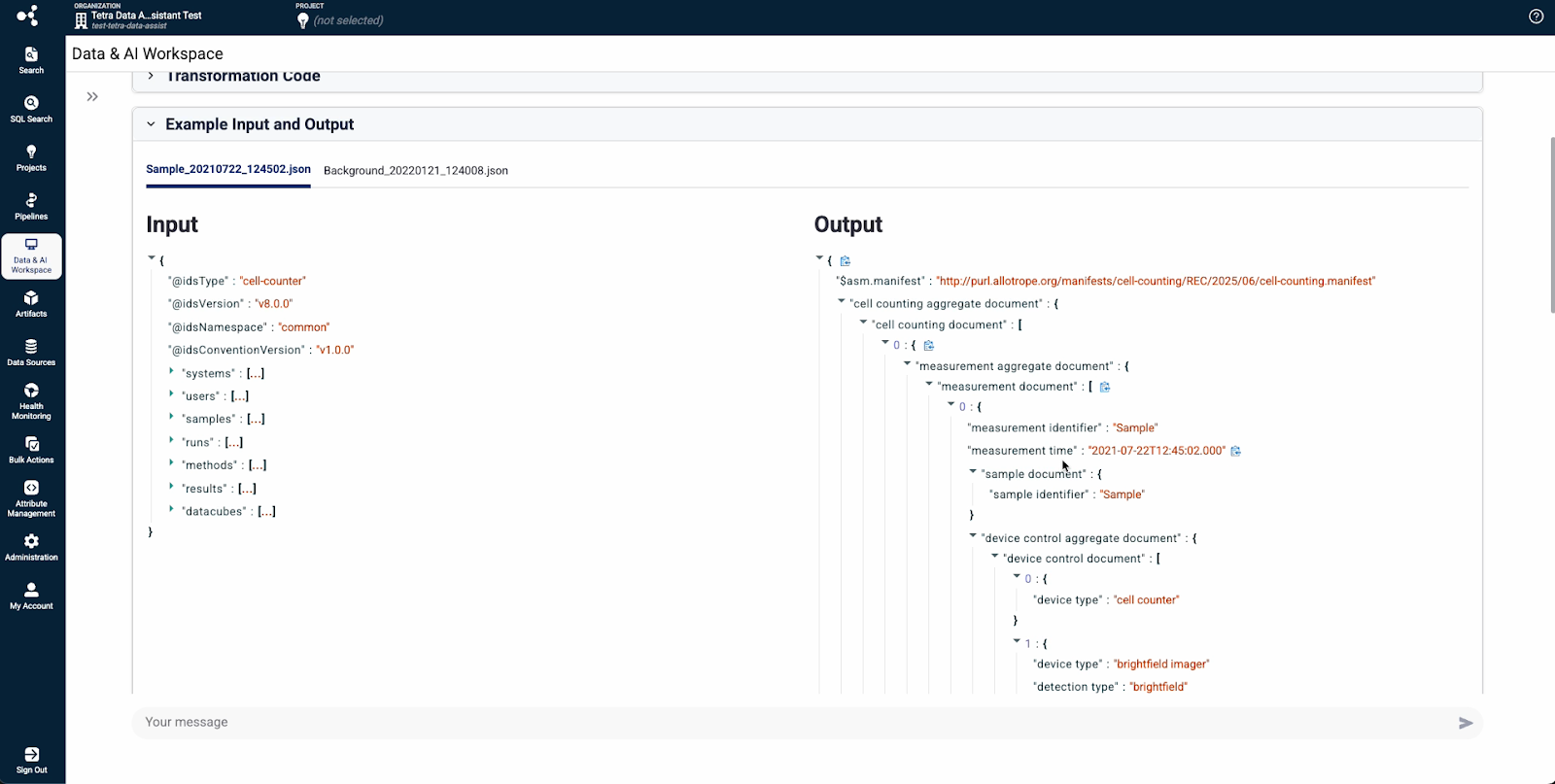Standardizing scientific data shouldn’t come at the cost of time, resources, or flexibility. That’s why we’ve built an AI agent that makes ASM generation seamless—and scalable.
Why ASM Matters
The Allotrope Simple Model (ASM) is an open, community-driven standard that helps labs create harmonized data across instruments, teams, and sites. By creating a common language, ASM facilitates collaboration and promotes shared approaches to data sharing.
We’re committed to helping customers embrace ASM at scale—as a sustainable capability, including extensions not yet available in community models. TetraScience has never licensed or charged customers for conversion into ASM. Our core value proposition is to remain open, vendor-agnostic, and never cause vendor lock-in.
A Future-Proof Path: From Instruments to ASM
ASM is powerful, but not every scientific dataset neatly fits into existing ASM schemas. Many instruments, analysis outputs, and experimental contexts still lack community-standard models, and consortium updates can take time.
That’s why TetraScience provides an open, vendor-agnostic intermediate representation known as the Intermediate Data Schema (IDS). It’s called intermediate because it preserves the full richness of source data today while making it easy to transform into ASM, NIIMBL, AnIML, or future community-driven standards tomorrow.
The IDS:
- Preserves data richness: Captures vendor-specific and experimental details that ASM alone may not represent, enabling taxonomies, ontologies, and downstream analytics.
- Enables immediate usability: Parsed directly from source data, it can be searched, queried, and analyzed via SQL while awaiting ASM parser or schema availability.
- Ensures flexibility: Convert once into an open, extensible format, then seamlessly standardize into ASM, AnIML, NIIMBL, or future community models.
- Accelerates ASM conversion: Because both formats are JSON-based and open, mapping is lightweight and efficient—without repetitive proprietary-to-standard conversions.
This approach gives organizations the best of both worlds: the complete scientific context needed for analytics and AI, and the standardized outputs required for collaboration, compliance, and interoperability.
ASM at Scale, Powered by AI
TetraScience fully embraces ASM, continues to invest, and is pleased to introduce a revolutionary new way of creating ASM datasets: the IDS to ASM Assistant.


Converting scientific data into ASM, whether from source formats or from IDS, has traditionally required custom scripting and professional services. Some open-source tools exist, but they parse into custom extensions and don’t handle customer-specific ASM extensions. Every new instrument type meant writing, testing, and maintaining fresh mapping logic—a process that slowed projects and increased costs.
We challenged ourselves with a simple problem: “How can any scientist or data scientist create ASMs rapidly at zero cost?”
Our new AI agent delivers:
- Minutes, not weeks: The AI agent analyzes IDS objects, maps them to the selected ASM schema, generates field mappings in code, and deploys them for immediate testing or use in the Tetra Data Platform. A process that once took weeks of coding can now be completed in a single working session.
- Lower overhead: No more building and maintaining custom scripts for each instrument. The AI generates mapping logic and pipelines automatically, reducing engineering effort and reliance on external services.
- Human-in-the-loop validation: Users remain in control, reviewing and adjusting AI-suggested mappings in real time. The agent flags mismatches or missing fields, but humans make the final call before deployment.
- Consistency at scale: Every mapping follows a repeatable, standards-based process. The AI applies rules uniformly across instruments, reducing variability and human error.
- Continuous improvement: Each mapping makes the system smarter. As ASM evolves, the AI adapts, ensuring organizations stay aligned without starting from scratch.
See how our AI agent turns weeks of scripting into minutes—mapping instrument data to ASM with speed, consistency, and confidence:
Why It Matters for Biopharma and Life Sciences
By combining richer scientific detail with standardized, open outputs, organizations gain:
- Data that is analytics- and AI-ready, without losing critical experimental context.
- Standards-based interoperability for compliance, collaboration, and exchange.
- A sustainable foundation that supports today’s ASM models and adapts to tomorrow’s community standards.
This means labs, IT teams, and R&D leaders no longer have to choose between detail and standardization. They can finally have both, at scale.
Looking Ahead
Supporting ASM is part of our broader mission: making scientific data liquid, FAIR, and AI-ready. By pairing a future-proof data foundation with open standards—and accelerating ASM adoption with AI—we help organizations unlock more value today while preparing for tomorrow’s evolving standards.
Want to see the AI agent in action? Contact us to request a demo.

